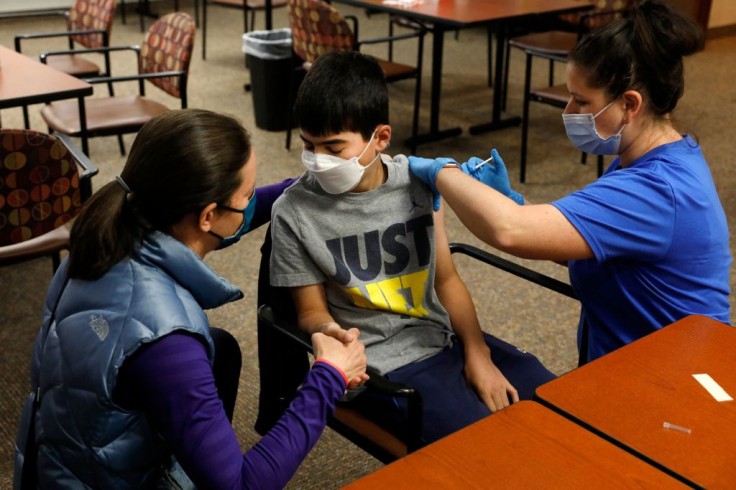
Amidst the biting winter winds, the Centers for Disease Control and Prevention (CDC) has raised the alarm with an urgent call for heightened vaccination efforts as respiratory cases surge across the nation.
The CDC's Health Alert Network (HAN) Health Advisory underscores the gravity of the situation, revealing startlingly low vaccination rates against influenza, COVID-19, and Respiratory Syncytial Virus (RSV).
As the winter health crisis intensifies, the CDC's urgent recommendations aim to address the looming threat of severe respiratory diseases and alleviate strain on healthcare systems.
Low Vaccination Rates Exacerbate Winter Health Crisis
The CDC's health alert exposes the vulnerability stemming from low vaccination rates against influenza, COVID-19, and RSV.
With respiratory disease activity on the rise due to various pathogens, including influenza viruses and SARS-CoV-2, the consequences of inadequate vaccination coverage loom large. The CDC warns that a failure to bolster vaccination rates could result in more severe disease outcomes and exacerbate the strain on healthcare capacity in the coming weeks.
Dr. Sarah Turner, a leading epidemiologist at the CDC, emphasizes the urgency, stating, "Low vaccination rates create a perfect storm for a winter health crisis. We are at a critical juncture where proactive measures, particularly vaccination, can make a significant difference in preventing severe respiratory illnesses and protecting our communities."
Multisystem Inflammatory Syndrome in Children (MIS-C) Adds to Concerns
Adding another layer of complexity to the unfolding crisis, the CDC highlights a recent surge in cases of multisystem inflammatory syndrome in children (MIS-C) following SARS-CoV-2 infection.
This inflammatory condition, which can affect various organs, has raised concerns among healthcare providers, necessitating immediate action to curb the spread of respiratory diseases.
The CDC urges healthcare professionals to remain vigilant and take a comprehensive approach to vaccination and preventive measures.
In response to the escalating crisis, the CDC issues specific recommendations for healthcare providers in its Health Advisory.
The agency stresses the immediate need to administer influenza, COVID-19, and RSV immunizations to eligible patients.
Healthcare providers are urged to align with current vaccination guidelines and prioritize high-risk populations, such as older adults and individuals with underlying medical conditions.
Moreover, the CDC recommends the prescription of antiviral medications for influenza and COVID-19, especially for those at high risk of progression to severe disease.
The emphasis on comprehensive patient counseling becomes paramount, covering not only vaccination but also testing and other preventive measures.
Healthcare providers are encouraged to educate patients on practices such as covering coughs and sneezes, staying at home when sick, improving ventilation in homes or workplaces, and maintaining rigorous hand hygiene.
Read Also: 7 Virginia Elementary Students Hospitalized After Ingesting Fentanyl-Laced Gummy Bears; Two Arrested
Community Response: A Collective Imperative
As the CDC issues this urgent call to action, the onus falls not only on healthcare providers but also on individuals and communities.
The winter health crisis necessitates a collective effort to overcome low vaccination rates and implement preventive measures.
The CDC underscores that individual responsibility in adhering to recommended practices plays a pivotal role in safeguarding public health.
As the winter deepens its grip, the CDC's Health Advisory serves as a clarion call for swift and decisive action.
By fortifying vaccination efforts, addressing low vaccination rates, and implementing recommended preventive measures, healthcare professionals and communities alike can contribute to mitigating the impact of respiratory diseases and protecting the well-being of the nation during this critical juncture.